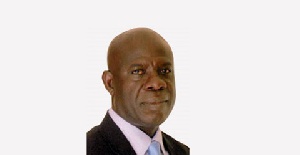The National Pensions Regulatory Authority (NPRA) on Tuesday organized a day’s training workshop for media practitioners in the Northern Region on the the 3-tier Pension Scheme for a better understanding.
The workshop among other things educated the media practitioners about pensions in Ghana before the reforms, relevance of pensions, background to the pensions reforms, coverage and exemption of the scheme, the new three-tier pension scheme and the legal mandate of service providers.
Mr Hayford Attah Krufi, Chief Executive Officer of NPRA said the media need more education on the three tier pensions scheme to be able to use their mediums to educate others on the relevance of pension.
He said the days of the traditional ways of taking care of the aged in the extended family system, which addressed the issue of looking after the elderly were over, due to scarce resources, pressure, urbanization, industrialization and migration.
He explained that the Pension scheme had now become the necessary substitute as an old- age security system for the aged, and a modern mechanism to provide retirement income to the aged for maintenance of their standard of living.
Mr Krufi emphasized that the objective was to provide pension benefits in other to ensure retirement income security for workers as well as ensuring that every worker receives retirement and its related benefits.
He said the new three tier pensions scheme had been categorized into three under the new National Pensions Act, 2008 (Act 766) namely the Basic National Social Security, the Occupational Pension Scheme and the Voluntary Group/ Personal Pension Scheme, all of which had their basic principles and stressed that it was mandatory for all employers to pay their employees pensions.
Mr Emmanuel Dagbenu, the Corporate Affairs manager of NPRA presenting a paper on “Understanding the 3-Tier Pension Scheme” said the minimum age for membership under this new Act was 15 year and the maximum age was is 45 years for new entrants.
He explained that the contribution rate is 13.5 per cent of workers’ monthly salary, out of which 2.5 per cent is levied for health care under the National Health Insurance Scheme, leaving 11 per cent for the pension scheme.
He said the old-age pension benefit required a maximum contribution period of 15 years (180 months) in aggregate while the survivors’ benefit is payable on death and the invalidity comes in the form of pension and required a contribution period of not less than 12 months within the last 36 months before the occurrence of the invalidity.
He said the improvement benefit had been reduced from 20 years to 15 years and survivors’ benefit computation period increased from 12 to 15 years while hazardous employment benefit for underground miners could retire and receive their benefits when they attain the age of 55.
He therefore called on all stakeholders to play their roles in educating and informing the public about the three types of pension schemes in the system currently to ensure retirement income security to their members.
Regional News of Wednesday, 27 September 2017
Source: ghananewsagency.org













